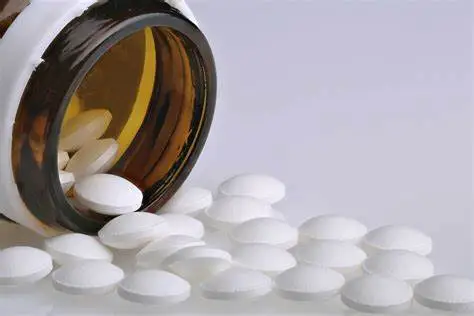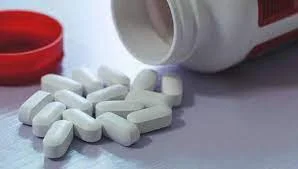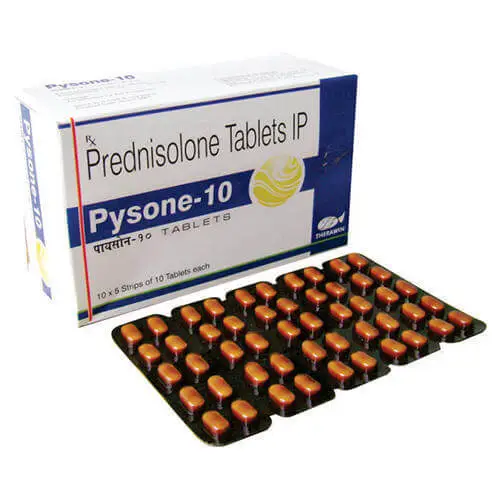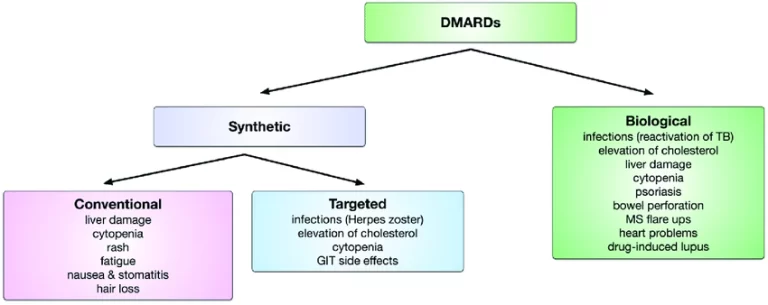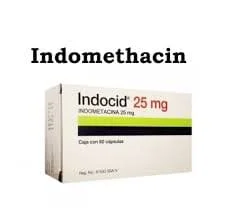Aspirin Uses, Benefits, Effects, Side Effects
Table of Contents
Introduction
Aspirin is an acetylated salicylate (acetylsalicylic acid) and is classified among the non-steroidal anti-inflammatory drugs (NSAIDs).
These agents help to reduce the signs and symptoms of inflammation and exhibit a broad range of pharmacologic activities, including analgesic, antipyretic, and antiplatelet properties. Aspirin was first discovered by the drug and dye firm Bayer in 1899.
Aspirin and other NSAIDs do not generally change the course of the disease process in those conditions where they are used for symptomatic relief.
Aspirin is a class of NSAID drugs with the following effects:
- Relieving pain
- Reducing fever
- Lowering inflammation, in higher doses
- These substances are not steroids. The advantages of steroids are frequently comparable to those of NSAIDs, however, they are not suitable for everyone and it may cause side effects.
- Generic Name – acetylsalicylic acid(ASA)
- Chemical Formula – C9H8O4
- AHFS/Drugs: Monograph
- Bioavailability: 80-100%
- Duration of action: 15 min-2 hours
- Excretion: Urine (80–100%), sweat, saliva, feces.
- Metabolism: Liver (CYP2C19 and possibly CYP3A), some is also hydrolyzed to salicylate in the gut wall.
- The onset of action: 15 min
- Routes of administration: oral and rectal
Indication of aspirin
Aspirin is used to treat several conditions, including fever, pain, rheumatic fever, and inflammatory conditions, such as rheumatoid arthritis, pericarditis, and Kawasaki disease. Lower doses of aspirin have also been shown to reduce the risk of death from a heart attack or stroke in people at high risk or who have cardiovascular disease.
- Pain
A component of aspirin is considered a first-line therapy in the treatment of migraine. It is effective at the Initial stage of migraines.
Aspirin has the ability to control pain, ability to control fever due to its action on the prostaglandin system through its irreversible inhibition of COX. Although aspirin’s use as an antipyretic in adults is well established, many medical societies and regulatory agencies, including the Food and Drug Administration, strongly advise avoiding aspirin for the treatment of fever in children because it causes a disease called Reye’s syndrome.
- Inflammation
Aspirin is an anti-inflammatory agent used to treat both acute and chronic inflammation, as well as for the treatment of inflammatory disorders, such as rheumatoid arthritis.
The following list includes some uses for aspirin:
- Angina pectoris
- Angina pectoris prophylaxis
- Ankylosing spondylitis
- Cardiovascular risk reduction
- Colorectal cancer
- Fever
- Ischemic stroke
- Ischemic stroke: Prophylaxis
- Myocardial infarction
- Myocardial infarction: prophylaxis
- Osteoarthritis
- Pain
- Revascularization procedures: prophylaxis
- Rheumatoid arthritis
- Systemic lupus erythematosus
Pharmacodynamics
Aspirin works by inhibiting an enzyme called cyclooxygenase(COX), which plays a key role in producing prostaglandins that promote inflammation, pain, and fever. By inhibiting COX, aspirin reduces the production of this substance, leading to its anti-inflammatory, analgesic (pain-relieving), and antipyretic effects.
Additionally, aspirin’s antiplatelet action makes it useful for preventing blood clots. The effects of aspirin on COX are irreversible, and its pharmacodynamics involve its interaction with platelets and various tissues throughout the body.
Administration of drug
Prescription aspirin is available in the form of an extended-release (long-acting) tablet. Non-prescription aspirin comes as a regular tablet, a delayed-release tablet (which releases the drug in the intestine to avoid stomach injury), chewable tablets, powder, and gum to take by mouth. Prescription aspirin is usually taken twice a day or more. Nonprescription aspirin is often taken once a day to reduce the risk of heart attack or stroke. To treat fever, Non-prescription aspirin is commonly taken every 4 to 6 hours.
- Swallow the extended-release tablet with a glass of water.
- Swallow the delayed-release tablets with a glass of water.
- Chewable aspirin tablets may be chewed or swallowed.
- Before giving aspirin to your kid or adolescent, consult with a doctor. In children and teenagers, aspirin may cause Reye’s syndrome (a dangerous disorder in which fat accumulates on the brain, liver, and other body organs).
- If a patient has had oral surgery in the last few days, they should ask their doctor which type of aspirin is safe.
- Delayed-release tablets are not preferable for fever as the mechanism of action is slow.
- Stop taking aspirin and immediately reach to your doctor if your fever lasts longer than 3 days or if any part of your body is painful.
Mechanism of action
Acetylsalicylic acid (ASA) blocks prostaglandin synthesis. For COX-1 and COX-2 enzymes it is non-selective. For about 7-10 days (average platelet lifespan) after COX-1 inhibition platelet aggregation is prevented. An irreversible inhibition of the cyclooxygenase-1 (COX-1) enzyme results from the binding of the acetyl group of acetylsalicylic acid with a serine residue.
This prevents the production of prostaglandins. Arachidonic acid’s conversion to thromboxane A2 (TXA2), a powerful inducer of platelet aggregation, is likewise stopped by this process. Platelet aggregation can result in clots and arterial thromboembolism, leading to conditions such as pulmonary embolism and stroke.
It is significant to note that COX-1 and COX-2 protein structures share 60% of their Ami no acid sequence. ASA binds to the active site of COX-2 in the same way as its binding to the serine 530 residue located on the active site of COX-1.
However, arachidonic acid (which transforms into prostaglandins) is able to circumvent the aspirin molecule that inactivates COX-2 because the active site of COX-2 is somewhat larger than the active site of COX-1 11,12. As a result, ASA has a greater effect on the COX-1 receptor than the COX-2 receptor. For COX-2 inhibition, a larger dose of acetylsalicylic acid is required.
Pharmacokinetics
Absorption: Aspirin is rapidly absorbed from the gastrointestinal tract, primarily in the stomach and upper small intestine. It is a weak acid and is absorbed more readily in its non-ionized form. The absorption process can be influenced by factors such as food in the stomach, the pH of the gastrointestinal tract, and the formulation of the aspirin tablet.
Distribution: Once absorbed, aspirin enters the bloodstream and is distributed throughout the body. It binds to plasma proteins, mainly albumin. Aspirin’s distribution can be influenced by factors such as its affinity for binding proteins and the permeability of various tissues.
Metabolism: Aspirin is primarily metabolized in the liver through hydrolysis to form salicylic acid, its active metabolite. The enzyme responsible for this hydrolysis is esterase. This metabolic conversion occurs rapidly, and most of the aspirin is converted to salicylic acid within hours of ingestion.
Excretion: Both aspirin and its metabolite, salicylic acid, are eliminated primarily by the kidneys through urine. The elimination half-life of aspirin is relatively short, around 15-20 minutes. However, the elimination half-life of salicylic acid is longer, ranging from 2 to 3 hours, allowing for a more sustained effect.
Route of elimination
Salicylates are primarily excreted from the body through the kidneys, through the glomerular filtration and tubular excretion processes, as free salicylic acid, salicyluric acid, as well as phenolic and acyl glucuronides Label.
After administration, salicylate can be detected in the urine, but it takes around 48 hours for the entire dose to be entirely excreted. Salicylate levels in urine can range from 10% to 85% and are highly influenced by the pH of the urine. While alkaline urine tends to promote excretion, acidic urine typically helps the renal tubules reabsorb salicylate.
It is discovered that first-order kinetics are linearly followed after the administration of a typical 325mg dose for the elimination of ASA. The half-life of elimination extends at high concentrations Label.
Uses of aspirin
Aspirin is a versatile medication with several medical and non-medical uses. It has been used for over a century and continues to be a valuable tool in healthcare. Aspirin is commonly used to relieve mild to moderate pain, such as headaches, dental pain, menstrual cramps, and common colds. Aspirin has anti-inflammatory properties and can help reduce inflammation and swelling. It is used for conditions like arthritis and other inflammatory joint diseases.
Before treating a child under the age of 12 years consult with your doctor. To prevent blood clots your doctor could advise you to take a low dose of aspirin. The risk of heart attack and stroke is decreased by this effect. If you just underwent surgery on clogged arteries (such as bypass surgery, carotid endarterectomy, or coronary stent), your physician may advise you to use aspirin in small doses.
Who should not utilize aspirin?
Aspirin is not suitable for some people.
- Aspirin should be avoided in children because it causes Reye’s syndrome. A condition which causes serious liver and brain damage.
- A person with a severe allergic reaction to aspirin or similar painkillers such as ibuprofen, should not utilize aspirin.
- Aspirin is not suitable for people with high blood pressure, asthma, or lung disease.
- People who have recently had a stroke are not given aspirin.
- Aspirin is not given to the person who suffers from liver and kidney disease.
When to control utilizing aspirin?
Individuals should control employing aspirin and contact a doctor if they experience:
- Abdominal or stomach pain, cramping, or burning.
- Black, tarry stools.
- Bloody or cloudy urine.
- Change in consciousness.
- Chest pain or discomfort.
- Confusion.
- Constipation.
- Convulsions, severe or continuing.
Aspirin and pregnancy
It’s generally recommended to avoid aspirin during pregnancy, especially in the third trimester, unless prescribed by a healthcare professional. Aspirin could potentially increase the risk of bleeding or other complications. before taking any medicine while pregnant, always see your physician.
Aspirin and breastfeeding
A low dose of aspirin is preferable while you are breastfeeding if your doctor has advised you to do so. Aspirin passes into breast milk in a very small amount, and it is unlikely to cause any side effects in your baby. However, there is a possibility that causes Reye’s syndrome in children. Talk to your health adviser or doctor as soon as possible, If you observe that your baby is not feeding usual, looks to be bleeding easily, has a rash, or if you have any other concerns about your infants.
Aspirin and fertility
According to the National Institute of Child Health and Human Development, 81 mg of aspirin per day, may increase a woman’s chance of getting pregnant by lowering systemic inflammation and enhancing the environment in which the embryo grows. Despite the fact that aspirin can have a number of side effects, many medical professionals argue that there is not enough data to support the idea that all women should take it frequently to boost their chances of becoming pregnant.
Allergic reactions
Aspirin can cause allergic reactions such as flushing, itchy rashes (hives), clogged and runny nose, and asthma, usually within an hour of taking a tablet. If you have hives (urticaria), nasal polyps, or asthma, your chances of developing an aspirin allergy are 10-30% higher than in those who do not have these symptoms. If you experience any of these symptoms, immediately contact your physician.
Is aspirin addictive?
If this medication is taken in excess for a long time, it may become a habit (causing mental or physical dependence) or cause an overdose. Which may lead to severe allergic reactions and side effects including chest pain, cold and clammy skin, difficulty in breathing, and dizziness or fainting.
What if aspirin does not work?
Doctors prescribe other alternative drugs to treat their patients. Tylenol the widely used alternative to aspirin, is an analgesic, pain reliever, and fever-reducing drug.
Side effects of the aspirin
Aspirin has the potential to induce major adverse effects. Stop using this medicine if you have certain side effects:
- Ringing in the ears, confusion, hallucinations, rapid breathing, seizure (convulsions)
- Severe nausea, vomiting, or stomach discomfort
- Bloody stools, coughing up blood, or vomit
- Fever lasting longer than three days
- Swelling or soreness that lasts more than 10 days
Some adverse effects may occur, however, they normally do not need medical treatment because it might fade away with therapy. In addition, your doctor may be able to advise you on how to avoid or mitigate some of these adverse effects. If any of the subsequent side effects occur, connect to your physician:
- Acid or sour stomach
- Anxiety
- Belching
- Dizziness
- Dry mouth
- Hyperventilation
- Irritability
- Shaking
- Trouble sleeping
- Unusual sleepiness, dullness, fatigue, weakness
Some people may also experience Other adverse effects. Connect to your physician if you observe any other side effects.
Precautions for taking aspirin
Before taking aspirin, tell your doctor if you have any other allergies.
Tell your doctor what prescription medication, vitamins, nutritional supplements, and herbal products you are taking or plan to take. Do not forget to mention any of the following drugs: acetazolamide; angiotensin-converting enzyme (ACE) inhibitors such as benazepril (Lotensin), captopril (Capoten), enalapril (Vasotec), fosinopril (Monopril), lisinopril, perindopril, quinapril; anticoagulants (‘blood thinners’) such as warfarin (Coumadin) and heparin; beta-blockers such as atenolol (Tenormin), labetalol, metoprolol and propranolol; diuretics (‘water pills’); medications for diabetes or arthritis. It will help your doctor to change medication according to your health condition.
- A person who has ever had asthma, frequent runny nose, or nasal polyps. If you have these conditions, there is a chance of having an allergic reaction to aspirin. Your physician could suggest against taking aspirin.
- Inform your health adviser if you often have heartburn, upset stomach, or stomach pain and if you have or have ever had ulcers, anemia, bleeding problems such as hemophilia, or kidney or liver disease.
- Women who are pregnant or they are breast-feeding. Low-dose aspirin 81-mg may be taken during pregnancy, but aspirin doses greater than 81 mg may affect the fetus and cause problems with delivery if it is taken around 20 weeks or later during pregnancy. Do not take aspirin doses greater than 81 mg around or after 20 weeks of pregnancy, unless told to do so by your doctor.
- Inform your doctor before any surgery if you are on any medication or if you are taking aspirin.
- If you drink three or more alcoholic beverages per day, consult your doctor about whether you need to take aspirin or other pain- and fever-relieving medications.
Interactions of drugs
Such type of medication interacts with other medicines and it cause serious side effects. some food interaction and drug interaction are as follow:
- Patients should avoid alcohol when they take aspirin, alcohol increases the risk of gastrointestinal bleeding.
- Avoid herbs and supplements with anticoagulant/antiplatelet activity. Examples include garlic, ginger, bilberry, piracetam, and ginkgo biloba.
- Acetylsalicylic acid may not be suitable with beta-blocker drugs, it may decrease the antihypertensive activities of that drugs.
- Acetylsalicylic acid may enhance Abciximab’s antiplatelet effects.
- The chances of hypoglycemia can be elevated when Acetylsalicylic acid and Acarbose are combined.
- The anticoagulant properties of acenocoumarol may be enhanced by acetylsalicylic acid.
Dosage:
Aspirin is widely available in the form of tablets but it is also available in the form of inhalants (respiratory), ointment(topical), and spray. The usual daily dose to prevent blood clots from forming in the arteries is one 100 mg tablet which helps to prevent heart attack or stroke. If you are taking daily aspirin, it is important that you don’t suddenly stop taking it as this could have a rebound effect and trigger a blood clot. Before quitting any medicine, always check with your doctor.
Aspirin and children:
The medicine control agency has recommended that children under 16 should not be given aspirin, giving aspirin to children during a viral illness most often influenza or chickenpox- can cause Reye’s syndrome, the rare but serious condition that causes inflammation and swelling of the brain and fatty degeneration of the liver. It occurs almost exclusively in children.
Overdose:
A toxic dose of aspirin is 200-300 mg/kg and ingestion of 500mg/kg is potentially lethal. The most friendly symptoms of overdose are ringing in the ears (tinnitus) and impaired hearing, rapid breathing (hyperventilation), vomiting, dehydration, fever, double vision, drowsiness or confusion, unsteady walking, and coma.
Call 911 immediately if a drug overdose is discovered or suspected, and the patient is unconscious, having convulsions, not breathing, or is otherwise seriously ill.
What if I miss the dose?
You might not be following a dosage regimen since aspirin is taken as needed. Take the missed dose as soon as you remember if you are on a schedule. Skip the missed dose if your next dose is almost due. Avoid taking more medication to make up for missed doses.
Storage
Keep this medication in the container and away from children. Store it at room temperature and Protect it from excess heat and moisture.
It is important to keep your all medication out of the sight and reach of children as many containers(such as weekly pill reminders and those for eye drops, creams, patches, and inhalers) are not child-resistant and they can open easily. To protect children from poisoning, always place the medication in a safe place.
FAQs
If I have coronary artery disease, should I stop taking aspirin?
The patient should not stop medication without consulting their physician. Moreover, the latest recommendation supports using aspirin along with other medications to prevent issues after heart attacks, stroke, or having a stent placed.
Can I drink alcohol with it?
A person can drink alcohol with a low dose of aspirin however drinking too much alcohol can irritate your stomach.
Does aspirin lower blood pressure?
several studies show that aspirin has no effect on blood pressure however overdose of aspirin may increase blood pressure.
Is it safe to take aspirin with paracetamol?
When used with paracetamol, aspirin is a safe pain reliever. But do not take aspirin with ibuprofen or naproxen without talking to your doctor.
Is aspirin good for a toothache?
Although taking an aspirin will provide temporary pain relief, it won’t actually eliminate toothache.



